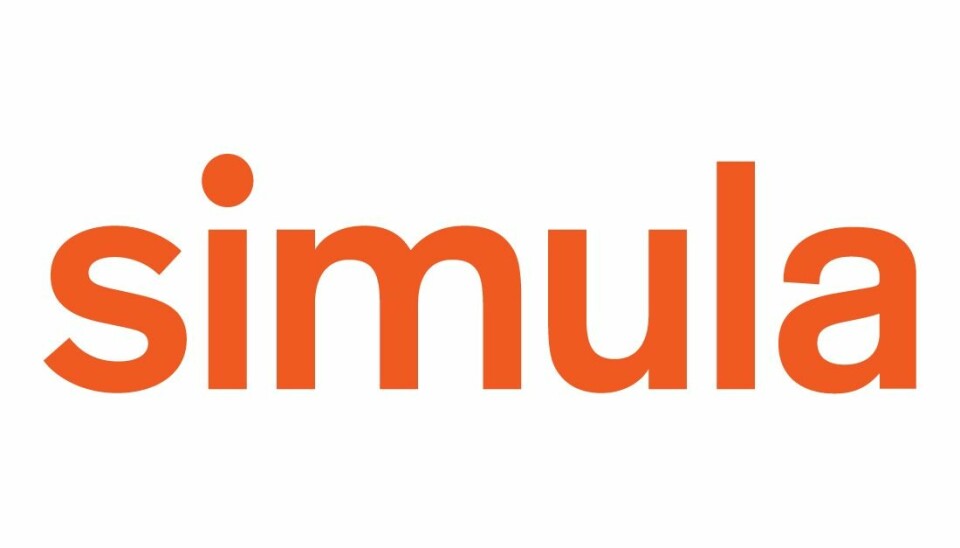Ledig stilling ved Simula
PhD Students in Data - Driven Software Engineering
Deadline: 31.08.2019
Call for PhD Students in Data-Driven Software Engineering
Simula Research Laboratory is seeking outstanding candidates for a three-year full-time paid PhD position in the field of data-driven software engineering with a specific focus on methods and techniques that enable intelligent self-healing software systems. The appointment is available immediately and review of candidates will be performed continuously until the position has been filled. Note that a second PhD position is available with a planned start date of October 2020 for which we also accept applications at this time.

Project Description
The position is funded by the Norwegian Research Council via the IKTPLUSS project cureIT. The primary objective of the cureIT project is to significantly increase the dependability, robustness, and resilience of today's software systems by developing new methods and techniques that help software engineers with the creation of intelligent self-healing software systems. These are systems that can autonomously detect the occurrence of unanticipated faults during execution, diagnose their causes, and recover from these situations.
To achieve this goal, we will build on the notion of an artificial immune system. Similar to the human immune system, it will recognize and take care of unanticipated pathogens (resp. faults/infections) that could have negative effects. In particular, the project will address the following key scientific outcomes:
(1) Intelligent data-driven techniques that can detect failures by learning what is the system's normal behaviour, and recognize when a system behaves abnormally.
(2) Adaptive learning techniques that will enable early recognition of failures that are similar to the ones that have been seen before.
(3) Cost-effective techniques to diagnose the root causes of a failure, and for containing its impact, both inside and outside the system.
Candidate profile
The appointment requires an MSc degree in Computer Science, with specialization in Software Engineering, Artificial Intelligence, or a closely related direction, with excellent marks for both the BSc and MSc degrees. Strong candidates will show that they are self-motivated, organized, eager to work on challenging research problems, and keen to communicate their results to others. Candidates are expected to demonstrate an excellent level of spoken and written English, possess solid analytical and programming skills, show good interpersonal and communication skills and a willingness to work as part of an international team. Simula is an equal opportunity employer, and women are particularly encouraged to apply.
Simula Offers
- excellent opportunities for performing high quality research, as part of a highly competent and motivated team of international collaborators;
- an informal and inclusive international working environment;
- generous support for travels and equipment;
- excellent facilities located by the Oslo fjord and a 10-minute drive from the centre of Oslo;
- competitive salary (the current range for PhD candidates is NOK 449,400 to NOK 497,000).
Application Requirements
Interested applicants are requested to submit the following (in PDF format):
- a cover letter explaining the candidate’s background, qualifications, research interests and how/why the candidate is qualified for the position
- curriculum vitae (summarizing education, positions and academic or industrial work, scientific publications, and software development experience)
- grade transcripts of MSc and BSc degree
- a sample of their writing, such as a copy of Master thesis, or a paper written as first author
- contact information of two references, including the Master supervisor(s)
The starting date is at the earliest convenience, with a planned project start in October 2019. Review of applicants will be conducted continuously until the position has been filled, and good candidates may be hired even before the deadline. Thus, interested applicants are encouraged to apply as soon as possible, and before the deadline of August 31st, 2019
Contact
Further enquiries regarding the position should be addressed to Leon Moonen (leon@simula.no). Note that applications should be submitted through the online submission system at:
https://www.simula.no/about/job/call-phd-students-data-driven-software-engineering
Simula Research Laboratory uses Semac´s background check in our recruitment process.
According to the Norwegian Freedom and Information Act (Offentleglova) information about the applicant may be included in the public applicant list, also in cases where the applicant has requested non-disclosure.






